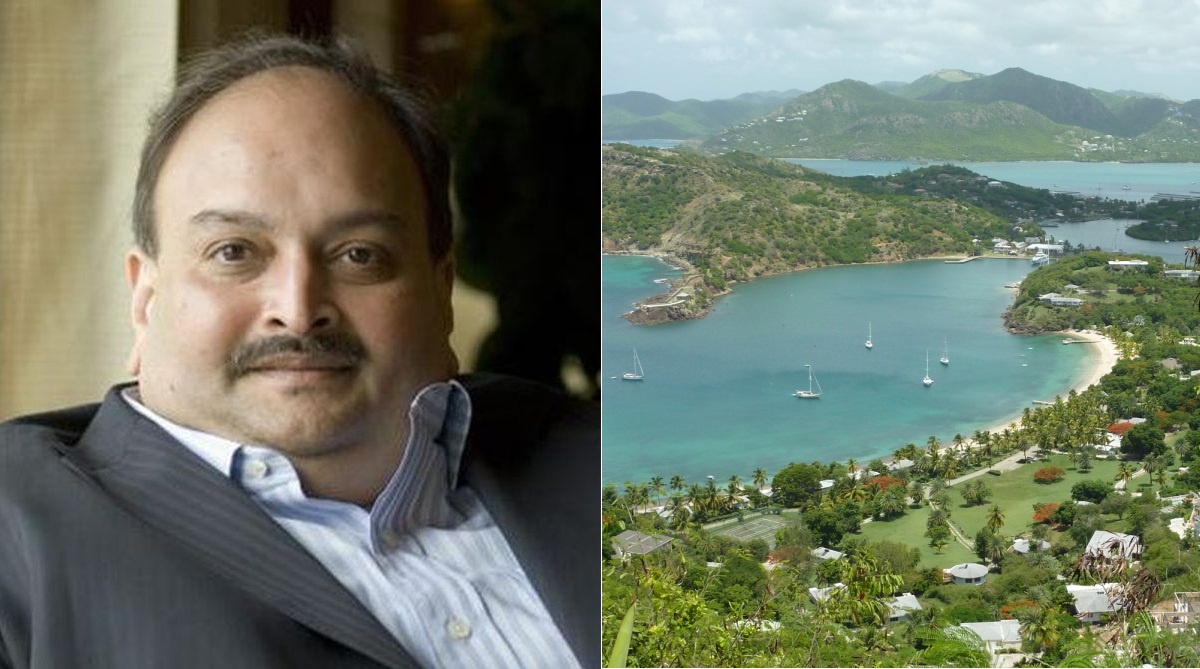Kharge calls out govt’s double standards citing Choksi case
Fugitive jeweller Mehul Choksi removed from the Interpol database of Red Corner Notices while Opposition leaders remained on the radar of the CBI and the ED.
Mehul Choksi, the fugitive bank fraudster who is wanted by Indian authorities, is now residing in the Caribbean nation of Antigua and Barbuda.

(Photo: Twitter/Wikimedia Commons)
Mehul Choksi, the fugitive bank fraudster who is wanted by Indian authorities, is now residing in the Caribbean nation of Antigua and Barbuda. Choksi, who is the uncle of Nirav Modi, main accused in the Rs 13,500-crore Punjab National Bank fraud, arrived on the island from the United States a few weeks ago using a local passport.
The revelation was made by Antiguan authorities last week after they received a Central Bureau of Investigation (CBI) notice regarding Choksi’s criminal status that was sent to all foreign countries via the Interpol.
Advertisement
After receiving information, the CBI shared it with the Enforcement Directorate (ED). Both CBI and ED have been probing the multi-crore bank fraud allegedly committed during 2011-2017.
Advertisement
But how did one of India’s most wanted men land up so easily on the island of Antigua with a legal passport?
The answer lies in a unique system called ‘citizenship by investment’.
Some countries in the world offer citizenship in exchange of investment, which can range from anywhere between $1 lakh and $1.7 million depending on the country and the type of investment.
Most of the nations that offer citizenship on sale are in the Caribbean region. Besides Antigua and Barbuda, the island nations of Saint Lucia, Dominica, Grenada and St. Kitts and Nevis offer citizenship against investment.
Anyone can ‘buy’ the citizenship of Antigua and Barbuda by pumping in money – a lot of money – into the economy of the island nation. There are three types of investment options available to those who want to take up the citizenship of Antigua and Barbuda.
The cheapest way is to invest is through a donation to the National Development Fund (NDF). With an investment of just $100,000 or about Rs 68 lakh, an Indian can become an Antiguan. The other two options are relatively costlier but cheaper than the options available in other countries.
The real estate option will require an investment of a least $450,000 (Rs 3 crore), including registration fees, by the applicant. The applicant can make as many as three family members citizens of the country for the amount. An additional $15,000 is required for every additional family member.
The third option is through a business investment in any of the approved businesses of the country amounting to $1.5 million (Rs 10.30 crore).
Among other Caribbean nations that offer a citizenship for as little as Rs 68 lakh are St Lucia and Dominica.
Once approved, an applicant is granted citizenship in about four months’ time. The system is thus remarkably different from the citizenship processes of other nations where the waiting time can stretch to several years.
What is even more interesting is that the passports of most of the Caribbean nations allow visa-free (hassle-free) entry into over 100 nations, including the UK.
Ravaged by storms all the year round, infrastructure building in the Caribbean island nations requires a lot of money. The citizenship for investment scheme is one of the many ways through which the nations attract funds for the development programmes undertaken by the respective governments.
But it is not the Caribbean nations alone which offer residency against investment. Developed nations such as New Zealand offer one of the costliest programmes with a minimum investment of Rs 14 crore.
A report in Antigua Observer quotes the Citizenship by Investment Unit (CIU) of the island nation as saying Choksi was granted citizenship “after extensive vetting” in November 2017 and “he swore the Oath of Allegiance in Antigua on 15 January 2018”.
The CIU also told the Observer that a “robust due diligence international investigation” was conducted before granting Choksi citizenship and that “the 2017 investigation revealed no derogatory information”.
Notably, the PNB fraud case emerged only when the bank filed a complaint with the CBI on 29 January this year.
The Choksi case so far
On 11 July, the ED asked a special court in Mumbai to declare diamond merchants Choksi and Nirav Modi as “fugitives” under the Fugitive Economic Offenders Ordinance 2018 because they fled from India a month before they were named in the fraudulent case on 31 January.
The ED has been probing two cases of money laundering against Choksi, Nirav Modi and others under Prevention of Money Laundering Act on the basis of FIR registered by the CBI, the prime investigating agency of the case.
In these cases, the ED had on 24 May and 26 May filed prosecution complaints or charge sheets against Choksi and Nirav Modi. The court has taken cognisance of the charge sheets and issued non-bailable warrant against both the absconders.
On the request of ED and the CBI, the Interpol has also issued Red Corder Notice against Nirav Modi.
(With inputs from agencies.)
Advertisement